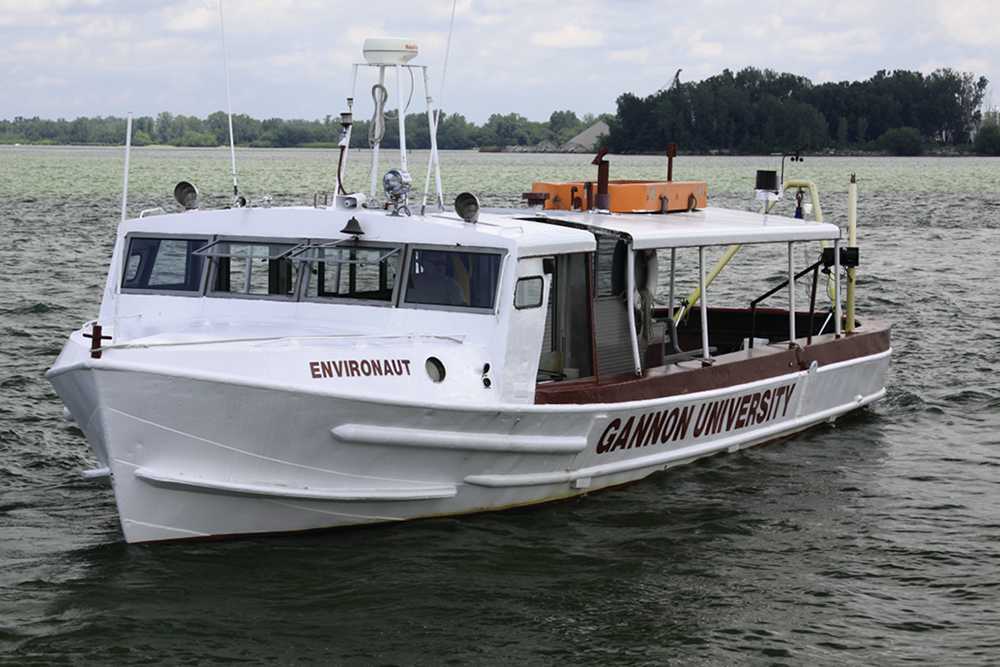Gannon University has added a new freshwater and marine biology major that is set to begin in the fall.
This program, which is being offered through the biology department, is designed to provide students with a combination of coursework and practical, hands-on experience to prepare them for a career in aquatic science.
The coursework will obviously be very heavy in biology, but what makes it stand alone is the elective courses set to accompany the typical biology requirements. Some of these electives will involve courses focused on limnology – or the study of inland waters – and fishery biology.
There will also be requirements in environmental science, geology, chemistry, physics and math.
Gregory M. Andraso, Ph.D., a professor in the biology department, will be the director of the newly created major.
According to Andraso, North America’s Great Lakes contain about 20 percent of the earth’s surface freshwater; they provide around 30 percent of Canada’s drinking water and about 10 percent of the United States’ drinking water.
So then, it was Gannon’s proximity to Lake Erie that made those involved in creating the program feel a sense of responsibility.
This program will provide students with the education necessary to work in fields that set out to protect these water sources.
“There is a history of the Great Lakes being abused,” he said. “We have made great strides in changing the way they are treated, but a lot of work still needs to be done, and that’s what these careers will focus on.”
The main idea is that the principles of our bodies of water in Erie will also applicable to most other bodies of freshwater, which makes it possible to work in almost any area.
Kyle Hartl, a junior legal studies major with a minor in pre-law, said his own personal affinity for creating and maintaining fish tanks may have drawn him into the major as a freshman.
“I think that marine biology is a very interesting field with such wide possibilities,” he said. “It was always a field I considered, but it wasn’t offered when I first enrolled here.”
Hartl also said that he thinks that the creation of this major will really sweeten the pot for prospective Gannon newcomers.
“In my experience, marine biology is a field that a lot of people are interested in and intrigued by,” he said. “I think just offering this program will bring in a lot of diverse students that we wouldn’t usually bring in.”
Andraso, who seconded Hartl’s notion, also said he has big plans for the future of the major.
Currently, his chief goal is to be able to create an affiliation with at least one marine lab on the East Coast in hopes that this will allow students to gather some experience in working around a seawater and ocean environment.
Still, though, Andraso realizes that the major will draw in a certain demographic that will add diversity to the Gannon community.
“I just think this will bring in kids that have a passion for aquatic environments because they spend their lives playing in creeks,” he said, “and we want them to know that they can make a career out of that passion.”
CHARLES LEAR
[email protected]












